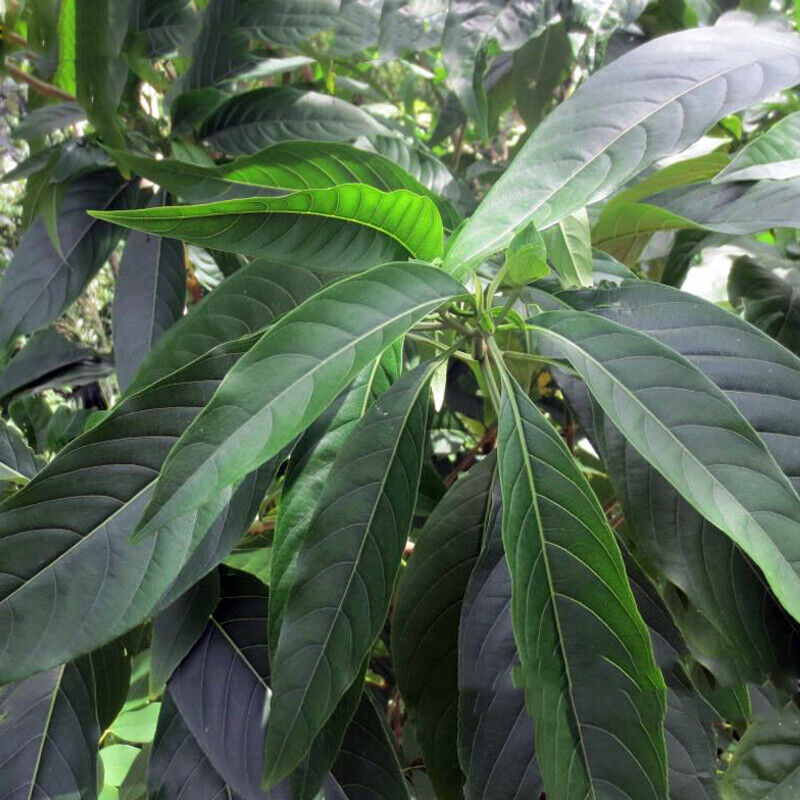Blog
Health Benefits of Justicia adhatoda: Malabar Nut Leaves and Bark Stem


Justicia adhatoda, commonly known as Malabar Nut, is a versatile medicinal plant native to the Indian subcontinent and parts of Southeast Asia. Renowned for its therapeutic properties, this plant has been used for centuries in traditional medicine systems such as Ayurveda and Unani. The leaves and bark stem of Justicia adhatoda are packed with bioactive compounds that contribute to its wide range of health benefits. In this article, we will delve into the medicinal uses, health benefits, and scientific backing of Justicia adhatoda, highlighting its significance in natural healing.
Phytochemical Composition
The therapeutic effects of Justicia adhatoda can be attributed to its rich phytochemical profile. Key components include:
- Alkaloids: Vasicine and vasicinone are the primary alkaloids found in the leaves and bark, known for their bronchodilator and expectorant properties.
- Flavonoids: These compounds provide antioxidant benefits, helping to protect cells from oxidative stress.
- Tannins: Known for their astringent qualities, tannins support digestive health and wound healing.
- Saponins: These compounds exhibit antimicrobial properties and can enhance immune function.
The synergistic action of these phytochemicals contributes to the numerous health benefits associated with Justicia adhatoda.
Health Benefits

1. Respiratory Health
Justicia adhatoda is widely recognized for its efficacy in treating respiratory conditions. The leaves and bark stem are commonly used to alleviate symptoms associated with:
- Coughs: The expectorant properties help clear mucus from the airways, making it easier to breathe.
- Asthma: Alkaloids in the plant can act as bronchodilators, relaxing the muscles of the airways and improving airflow.
- Chronic Bronchitis: Regular consumption of Justicia adhatoda can provide relief from chronic coughs and bronchial inflammation.
2. Antimicrobial Activity
Research has shown that extracts from Justicia adhatoda possess significant antimicrobial properties. This makes it effective against various pathogens, including bacteria and fungi. Its traditional use in treating infections such as tuberculosis highlights its potential as a natural antibiotic alternative.
3. Anti-inflammatory Effects
The anti-inflammatory properties of Justicia adhatoda can help reduce inflammation throughout the body. This is particularly beneficial for individuals suffering from inflammatory conditions such as arthritis or inflammatory bowel disease (IBD). By inhibiting pro-inflammatory cytokines, this plant can alleviate pain and swelling.
4. Cardiovascular Health
Justicia adhatoda has shown promise in promoting cardiovascular health. Studies indicate that it may help regulate blood pressure and improve circulation due to its anticoagulant properties. This makes it a valuable addition to the diet for individuals at risk of heart disease or stroke.
5. Hemostatic Properties
One of the unique benefits of Justicia adhatoda is its ability to support hemostasis (the process that prevents and stops bleeding). Research indicates that leaf extracts can significantly decrease bleeding time in cases of coagulopathy induced by anticoagulant drugs like warfarin and aspirin. This property makes it a potential candidate for managing bleeding disorders effectively.
6. Digestive Health
The astringent properties of Justicia adhatoda make it beneficial for digestive health. It can help manage diarrhea by tightening tissues and reducing secretions in the intestines. Additionally, its antimicrobial effects can combat harmful bacteria in the gut, promoting overall digestive wellness.
Traditional Uses
In traditional medicine systems, Justicia adhatoda has been employed for various ailments:
- Menorrhagia: Traditionally used to treat heavy menstrual bleeding due to its hemostatic properties.
- Piles: The anti-inflammatory effects can alleviate symptoms associated with hemorrhoids.
- Fever: The leaves have been used to reduce fever through their cooling effects on the body.
How to Use Justicia adhatoda
Justicia adhatoda can be consumed in various forms:
- Infusions: Dried leaves can be steeped in hot water to create herbal teas that harness their health benefits.
- Powdered Form: The dried leaves or bark can be ground into powder and added to smoothies or food for an added nutritional boost.
- Extracts: Available in liquid form, extracts can be taken directly or mixed with water or juice.
Precautions
While Justicia adhatoda is generally considered safe when used appropriately, it’s essential to consult with a healthcare provider before incorporating any new herbal remedies into your routine—especially if you are pregnant, nursing, or taking medications that affect blood clotting.
Conclusion
Justicia adhatoda stands out as a remarkable medicinal herb with a long history of use in traditional medicine. From respiratory support to antimicrobial activity and cardiovascular benefits, this plant offers a wealth of health advantages backed by scientific research.As interest grows in natural remedies for maintaining health, incorporating Justicia adhatoda into your wellness routine could provide significant benefits. Whether enjoyed as a tea or taken as an extract, this powerful herb deserves recognition as an essential part of holistic health practices.By understanding the myriad benefits of Justicia adhatoda and sharing this knowledge, we can promote natural healing practices that honor both tradition and modern science. Embrace the power of nature with this incredible herb and unlock its potential for enhancing your well-being today!
Discover more from Nath Mart
Subscribe to get the latest posts sent to your email.
